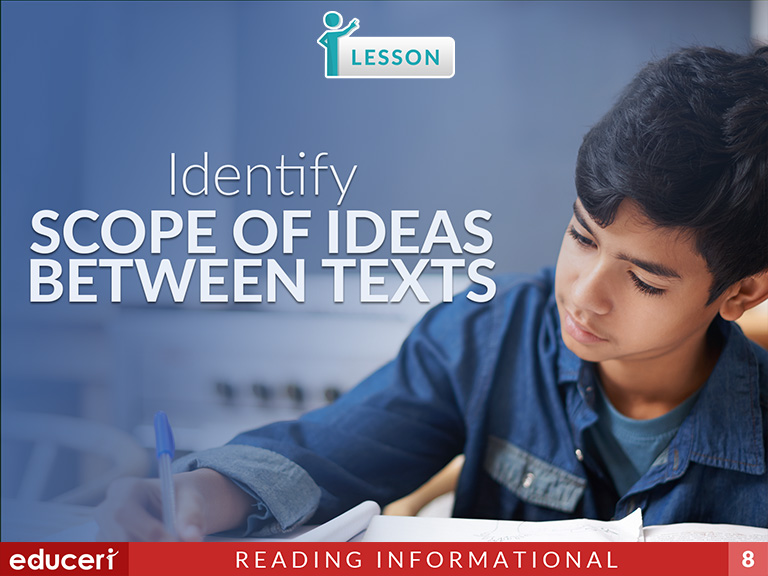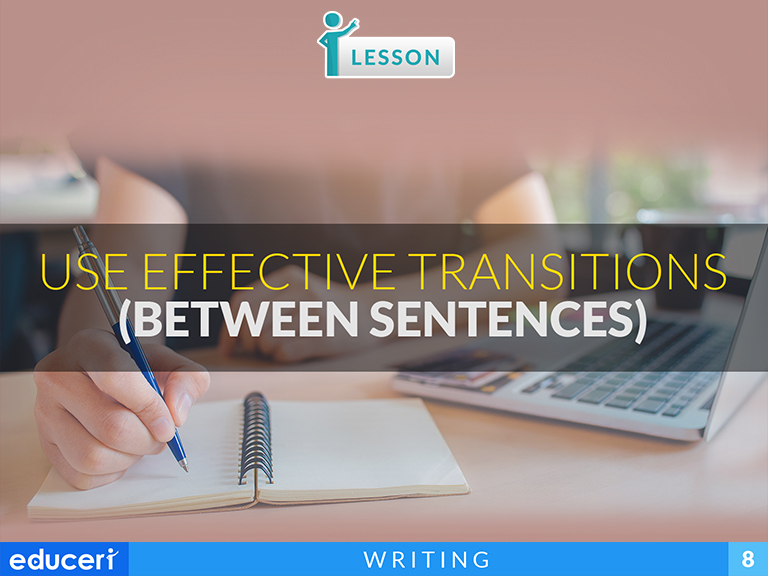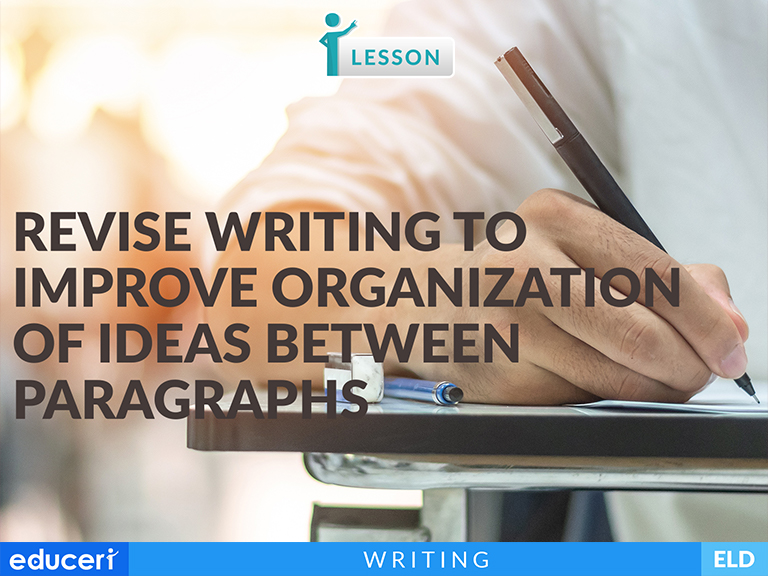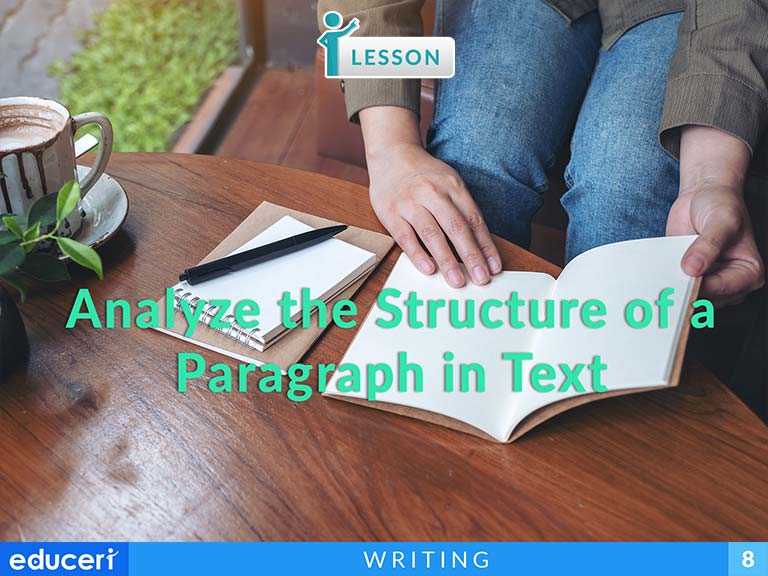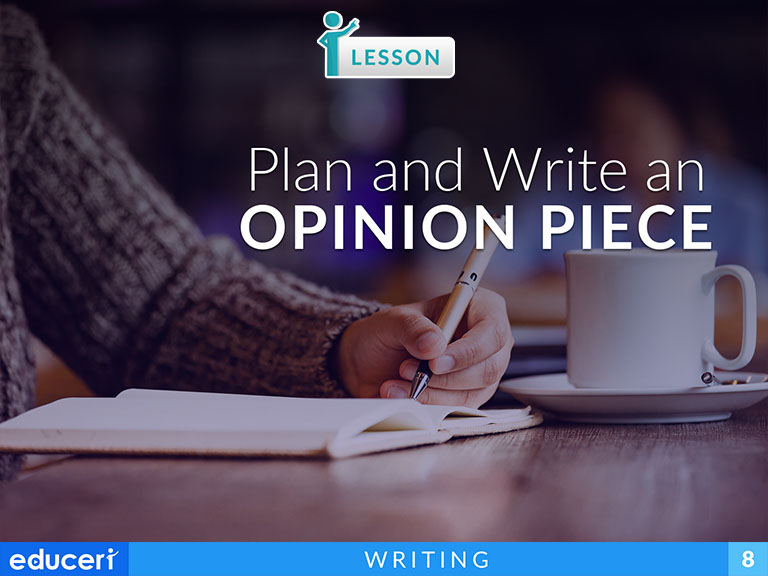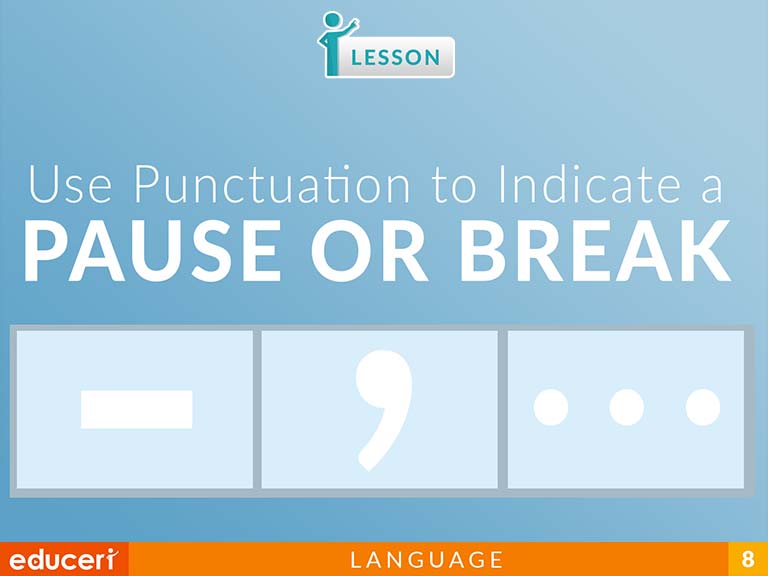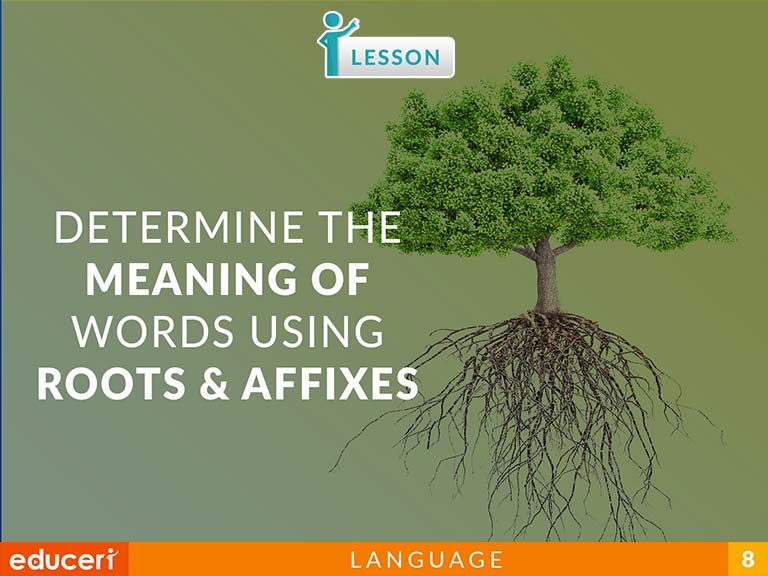All Lessons

Use Varied Sentence Openings
This writing conventions lesson focuses on using varied sentence openings. The lesson includes research-based strategies and strategic questions that prepare students for assessments. In this lesson, students read the passage and identify sentences that are repetitive. Then, they vary sentence opening by rewriting repetitive sentences using common sentence openings such as an -ly word, -ing phrase, or prepositional phrase. Finally, they answer questions about the personal style of the author that reflects on other sentence opening options. In addition to the lesson, there are four pages of Independent Practice and review modeled on current adaptive testing methods.
Share This Lesson

Write a Thesis Statement for Argumentative Text
This writing strategies lesson focuses on writing a coherent thesis statement. The lesson includes research-based strategies and strategic questions that prepare students for assessments. In this lesson, students identify the topic of the text and the controlling impression. Then, they read the remaining sentences to determine the author's reasoning as seen in supporting details. Finally, they combine the topic, controlling impression, and reasoning into a coherent thesis statement. In addition to the lesson, there are four pages of Independent Practice and review modeled on current adaptive testing methods.
Share This Lesson

Support a Thesis with Quotations and Paraphrasing
This writing strategies lesson focuses on supporting a thesis using quotations and paraphrasing. The lesson includes research-based strategies and strategic questions that prepare students for assessments. In this lesson, students read a given thesis based on a provided text. Then, they read the text, identifying quotations that support the thesis and paraphrasing other information that supports the thesis. Finally, they explain how the quotations and paraphrasing support the thesis. In addition to the lesson, there are four more articles and graphic organizers for Independent Practice and review modeled after current adaptive testing items.
Share This Lesson

Revise Writing for Appropriate Word Choice
This writing strategies lesson focuses on revising writing for appropriate word choice. The lesson includes research-based strategies and strategic questions that prepare students for assessments. In this lesson, students read the question and the paragraph looking for the underline word to be revised. Then, they determine a more appropriate word to replace the underlined word, using a word bank of necessary. Finally, they reread the sentence with the new word to check. In addition to the lesson, there are four more pages for Independent Practice and review modeled after current adaptive testing items.
Share This Lesson
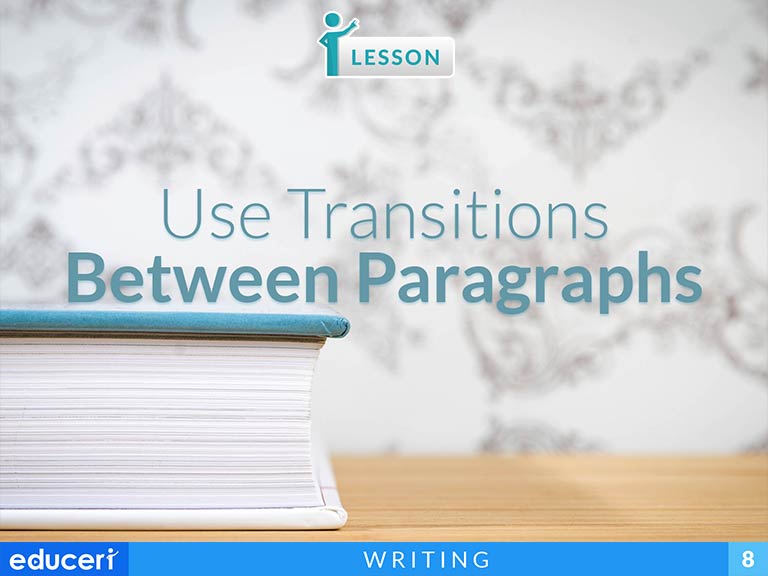
Revise Writing to Use Effective Transitions Between Paragraphs
This writing strategies lesson focuses on revising writing to use effective transitions between paragraphs. The lesson includes research-based strategies and strategic questions that prepare students for assessments. In this lesson, students read the paragraph and identify any details that have a common idea and would suggest the main idea. Then, they determine the main idea of each paragraph. Finally, they determine the relationship between the paragraphs and select an effective transition sentence from the choices given. In addition to the lesson, there are four more pages for Independent Practice and review modeled after current adaptive testing items.
Share This Lesson
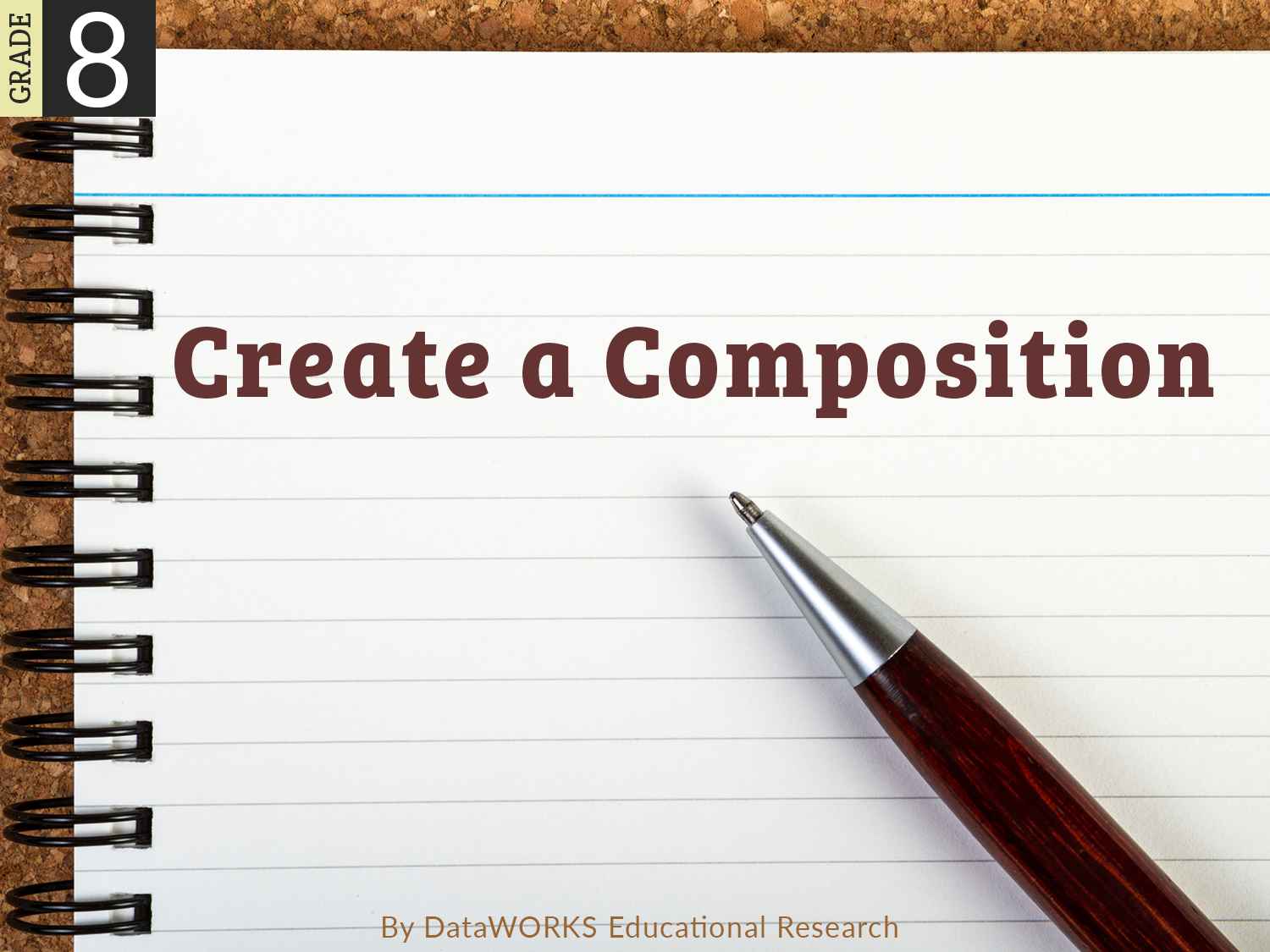
Create a Composition
This writing strategies lesson focuses on creating a composition. The lesson includes research-based strategies and strategic questions that prepare students for assessments. In this lesson, students choose a topic and write their controlling impression (their opinion). Then, they research to find three broad reasons for that support their impression. Then, they write the thesis statement with a controlling impression, followed by elaboration on the reasons in the body, and a summary or final appeal for the conclusion. In addition to the lesson, there are three more graphic organizers for planning and writing the composition as well as a page of possible topics.
Share This Lesson

Revise Writing for Consistent Point of View
This writing strategies lesson focuses on revising writing from a consistent point of view. The lesson includes research-based strategies and strategic questions that prepare students for assessments. In this lesson, students read the passage and underline all pronouns used. Then, they determine if the first, second, or third person is used in each sentence. Then, they identify any sentences that use an inconsistent point of view and rewrite it. Finally, they reread the passage as revised and explain how this change maintains a consistent point of view. In addition to the lesson, there are four more pages for Independent Practice and review modeled after current adaptive testing items.
Share This Lesson
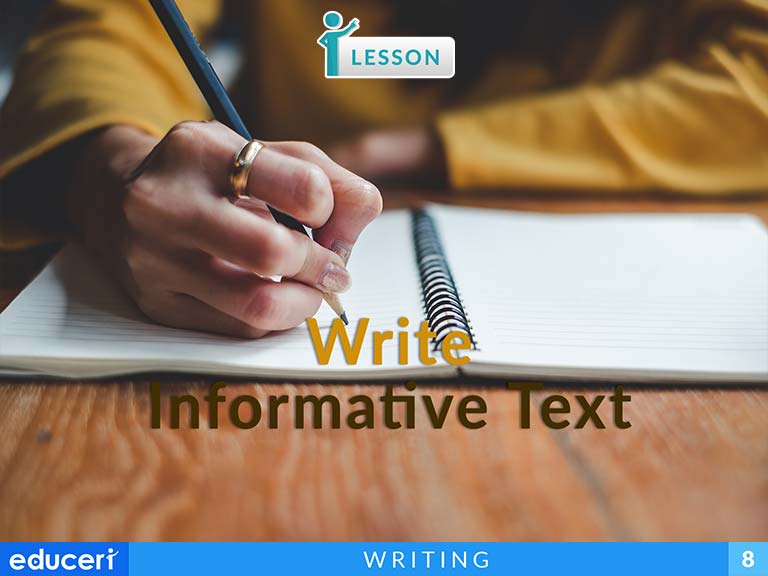
Write Informative Text
This writing lesson covers how to write informative text. The lesson includes research-based strategies and strategic questions that prepare students for assessments. In this lesson, students write at least one complete sentence for each section of the planning chart completed in the Plan Informative Text lesson. Then, they use an editing checklist to identify and correct any errors. In addition to the lesson, there are four pages of topics for review and extended thinking.
Share This Lesson
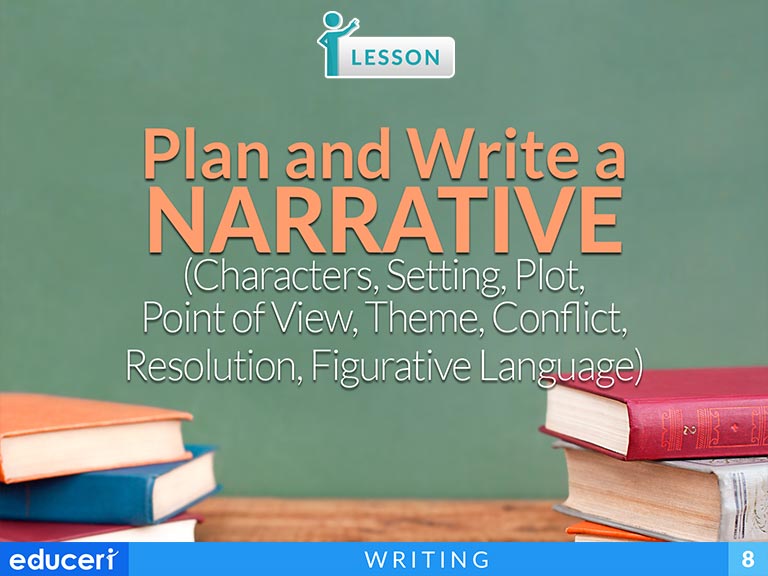
Plan and Write a Narrative
In this writing lesson, students will plan and write a narrative composition.
Share This Lesson
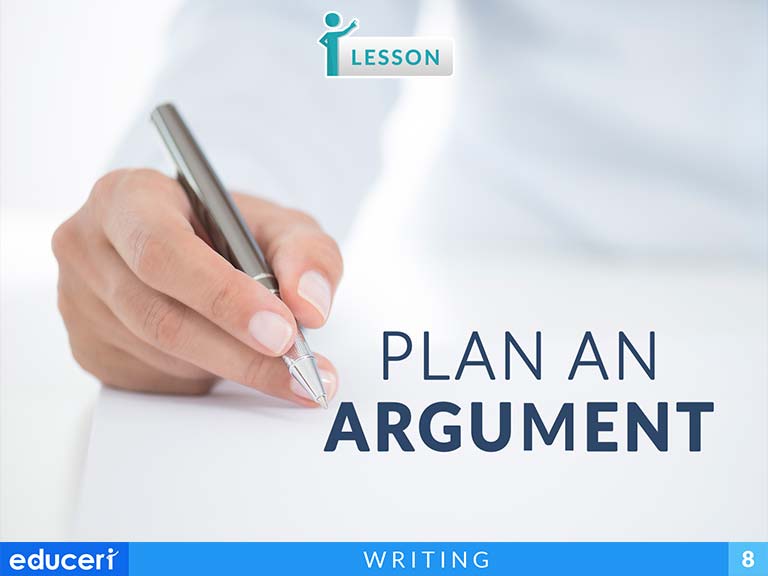
Plan an Argument
This writing lesson covers how to plan an argument. The lesson includes research-based strategies and strategic questions that prepare students for assessments. In this lesson, students read the topic and decide their position about it. Then they identify three appeals for their position, focusing on logical, emotional, and ethical. They also restate their position for a summary. In addition to the lesson, there are four pages of new topics for review.
Share This Lesson
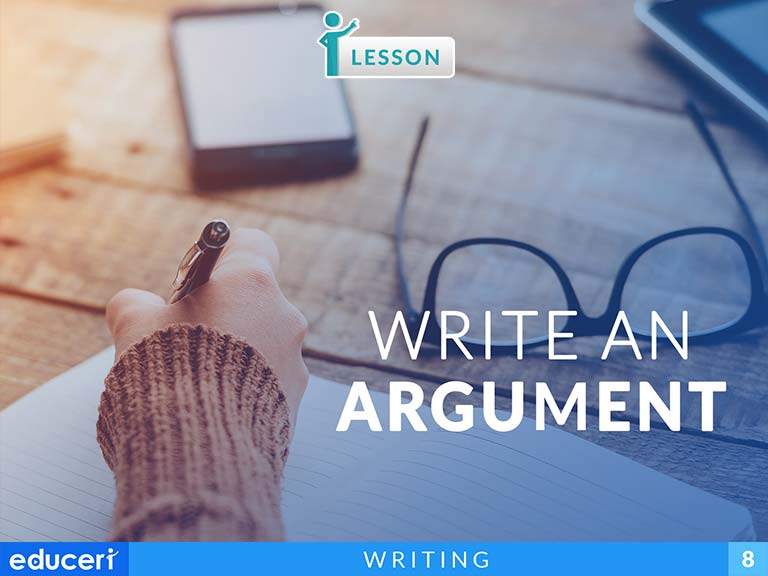
Write an Argument
This writing lesson covers how to write an opinion piece. The lesson includes research-based strategies and strategic questions that prepare students for assessments. In this lesson, students write an introduction that introduces the topic and states their position. Then, they write paragraphs that use logical, emotional, or ethical appeals to the audience. Finally, they write a summary paragraph that restates their position. These sentences are based on the planning charts created in the Plan an Opinion Piece lesson. In addition to the lesson, there are four pages of new topics for review.
Share This Lesson
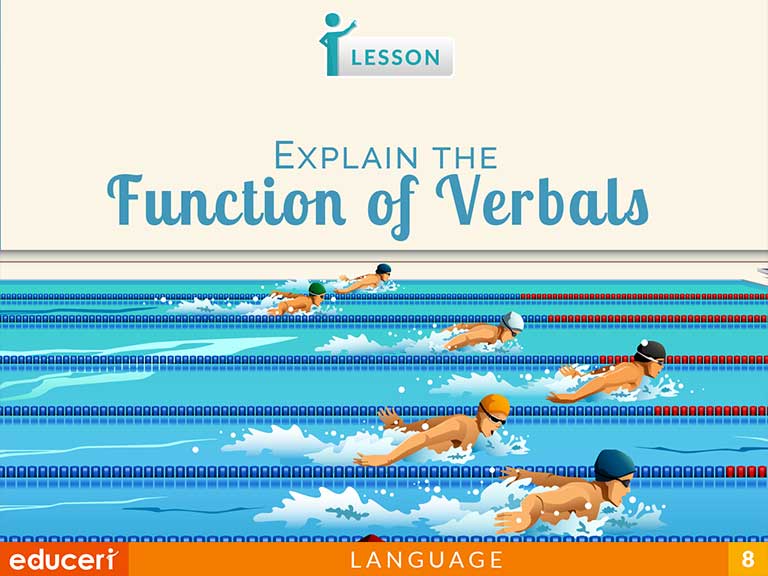
Explain the Function of Verbals
This language lesson explains the function of verbals (gerunds, participles, infinitives) in general and their function in particular sentences. The lesson includes research-based strategies and strategic questions that prepare students for assessments. In this lesson, students will learn to identify the different types of verbals as well as their part of speech.
Share This Lesson
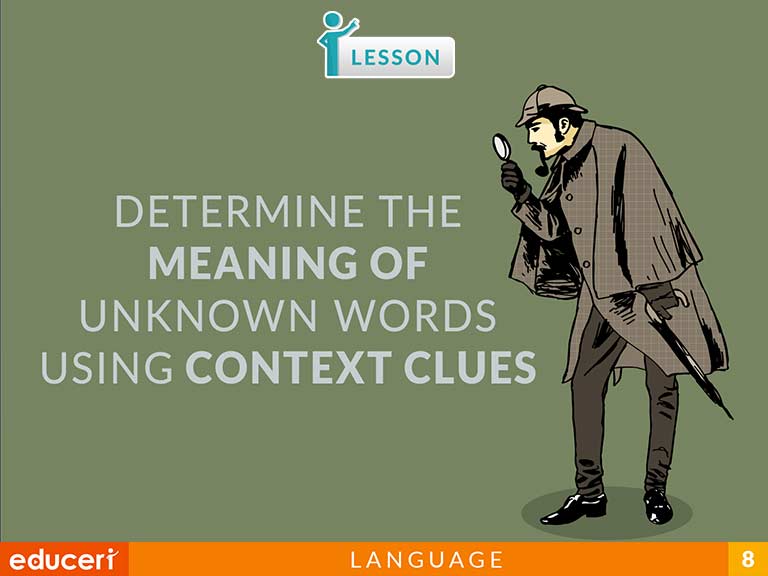
Determine the Meaning of Words Using Context Clues
L.8.4 Determine or clarify the meaning of unknown and multiple-meaning words or phrases based on grade 8 reading and content, choosing flexibly from a range of strategies.
L.8.4.AL.8.4.A Use context (e.g., the overall meaning of a sentence or paragraph; a word's position or function in a sentence) as a clue to the meaning of a word or phrase.
This language/vocabulary lesson covers the use of context (e.g., the overall meaning of a sentence or paragraph; a word's position or function in a sentence) as a clue to the meaning of a word or phrase. The lesson includes research-based strategies and strategic questions that prepare students for assessments. In this lesson, students will identify word meaning within expository passages.
